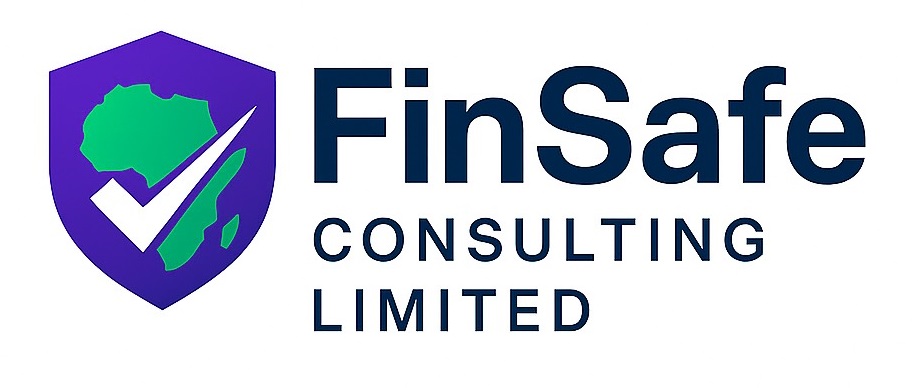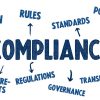
Introduction
By Finsafe Consulting Limited
In today’s global fight against money laundering, terrorism financing, and illicit financial flows, the concept of Beneficial Ownership (BO) has become a cornerstone of financial transparency. For SACCOs and Forex Bureaus in Kenya, understanding who truly owns or controls your clients’ entities is not just a compliance requirement—it is a risk management imperative.
Beneficial Ownership goes beyond legal ownership. It identifies the natural person(s) who ultimately enjoy the benefits of ownership or control, even if those rights are exercised through layers of companies, trusts, or nominees. Know Your Customer (KYC) doesn’t stop at collecting ID numbers. Regulators now require financial institutions to identify beneficial owners—the natural persons who ultimately own or control a customer. SACCOs and forex bureaus are increasingly under scrutiny in this area.
Why Beneficial Ownership Transparency Is Critical
- Prevention of Money Laundering: Anonymous ownership structures are often exploited to hide illicit wealth.
- Regulatory Requirements: The Proceeds of Crime and Anti-Money Laundering Act (POCAMLA) and regulations by the Financial Reporting Centre (FRC) require reporting institutions to identify and verify their customers’ beneficial owners.
- Global Pressure: Kenya is expected to align with FATF’s global standards, requiring improved transparency.
- Risk Reduction – Criminals often use shell companies to hide their identities. Identifying the UBO exposes hidden control and reduces exposure to illicit transactions.
- Enhanced Due Diligence (EDD) – SACCOs and Forex Bureaus are expected to go beyond standard KYC and implement enhanced checks for high-risk customers.
Common Challenges
- Layered ownership structures
- Incomplete documentation
- Lack of staff training
Steps to Identify the Ultimate Beneficial Owner (UBO) in Kenya - Collect Ownership Information from the Customer
- Request the customer to complete a Beneficial Ownership Declaration Form, including full names, ID/Passport numbers, nationality, and percentage of ownership or control.
- Check the Business Registration Service (BRS) Company Registry
- Search the entity on the Kenya Business Registration Service (BRS) portal to verify official ownership records.
- Since October 2020, Kenyan companies must file Beneficial Ownership information with the Registrar of Companies.
- Identify Natural Persons with Significant Control
- Under Kenyan law, a UBO is generally anyone who directly or indirectly holds 25% or more of the shares, voting rights, or ownership interest in a legal person.
- If no one meets the threshold, identify the person who exercises significant influence or control over management.
- Trace Through Ownership Layers
- If a shareholder is a company, check its BO record on the Company Registry until you reach the natural person(s) at the top of the chain.
- Verify Identity and Supporting Documents
- Obtain certified copies of ID/Passport for individuals identified as UBOs.
- Cross-check against sanctions lists, politically exposed persons (PEP) databases, and adverse media reports.
- Document and Keep Records
- Maintain records of all findings, searches, and supporting documents for at least 7 years as per regulatory requirements.
- Update Periodically
Steps to Identify the Ultimate Beneficial Owner (UBO) in Kenya
- Collect Ownership Information from the Customer
- Request the customer to complete a Beneficial Ownership Declaration Form, including full names, ID/Passport numbers, nationality, and percentage of ownership or control.
- Check the Business Registration Service (BRS) Company Registry
- Search the entity on the Kenya Business Registration Service (BRS) portal to verify official ownership records.
- Since October 2020, Kenyan companies must file Beneficial Ownership information with the Registrar of Companies.
- Identify Natural Persons with Significant Control
- Under Kenyan law, a UBO is generally anyone who directly or indirectly holds 25% or more of the shares, voting rights, or ownership interest in a legal person.
- If no one meets the threshold, identify the person who exercises significant influence or control over management.
- Trace Through Ownership Layers
- If a shareholder is a company, check its BO record on the Company Registry until you reach the natural person(s) at the top of the chain.
- Verify Identity and Supporting Documents
- Obtain certified copies of ID/Passport for individuals identified as UBOs.
- Cross-check against sanctions lists, politically exposed persons (PEP) databases, and adverse media reports.
- Document and Keep Records
- Maintain records of all findings, searches, and supporting documents for at least 7 years as per regulatory requirements.
- Update Periodically
Case Example: How to Identify the Ultimate Beneficial Owner (UBO) in Kenya
1. For SACCOs – Example: Corporate Member Loan Application
Scenario: A corporate member applies for a KES 20 million loan.
Step by Step Guide:
Front Office Staff –
Collect a Beneficial Ownership Declaration Form from the client with details of all individuals who own/control the entity.
Compliance Officer –
Log into the Kenya Business Registration Service (BRS) portal and retrieve the company’s BO record.
Cross-check the declared owners against official records.
Compliance Officer –
If the shareholder is another company, repeat the search on that entity until a natural person is found.
Compliance Officer & Risk Manager –
Verify IDs/Passports of UBOs, check against sanctions lists, and assess for Politically Exposed Person (PEP) risk.
Records Officer –
File and store copies of search results, identification documents, and verification logs for 7 years.
2. For Forex Bureaus – Example: High-Volume Corporate Client
Scenario: A new corporate client seeks to exchange USD 500,000 monthly.
Step by Step Guide for Forex Bureau:
Front Desk Officer –
Request a BO Declaration Form and corporate registration documents from the client.
Compliance Officer –
Search the company on the BRS Company Registry to confirm ownership details.
Compliance Officer –
If a shareholder is a company, conduct layered tracing through the registry until a natural person is identified.
Compliance & AML Officer –
Verify UBO identity documents and screen them against sanctions/PEP/adverse media databases.
Operations Manager –
Approve or decline onboarding based on due diligence findings.
What If the UBO Cannot Be Identified?
If despite reasonable efforts, the UBO cannot be established:
Escalate Internally – The Compliance Officer must inform the MLRO (Money Laundering Reporting Officer) and senior management.
File a Suspicious Transaction Report (STR) – Submit to the Financial Reporting Centre (FRC) detailing all attempted steps and the customer’s non-cooperation or lack of transparency.
Do Not Proceed with the Relationship – Under Kenya’s AML regulations, onboarding or transacting with a customer whose UBO cannot be identified is prohibited.
Document All Attempts – Keep full records of searches, correspondence, and evidence of obstruction or unverifiable ownership.
Key Takeaways
Always trace to the natural person who ultimately owns or controls the entity, even if this means passing through several layers of ownership.
Use the BRS Company Registry as your primary verification tool.
If the UBO cannot be found, escalate, report, and refuse onboarding—compliance must come before profit.
At Finsafe Consulting Limited, we design tailored UBO identification and verification frameworks for SACCOs, Forex Bureaus, and other financial institutions—helping them stay compliant, avoid penalties, and reduce financial crime exposure.
We conduct beneficial ownership assessments, help streamline documentation practices, and train your staff to conduct enhanced due diligence. SACCOs and forex bureaus don’t need to be caught unprepared.
Contact Us
📧 consult@finsafeconsulting.com | 📞 +254 705 170 385
🔗 LinkedIn: Finsafe Consulting Ltd


